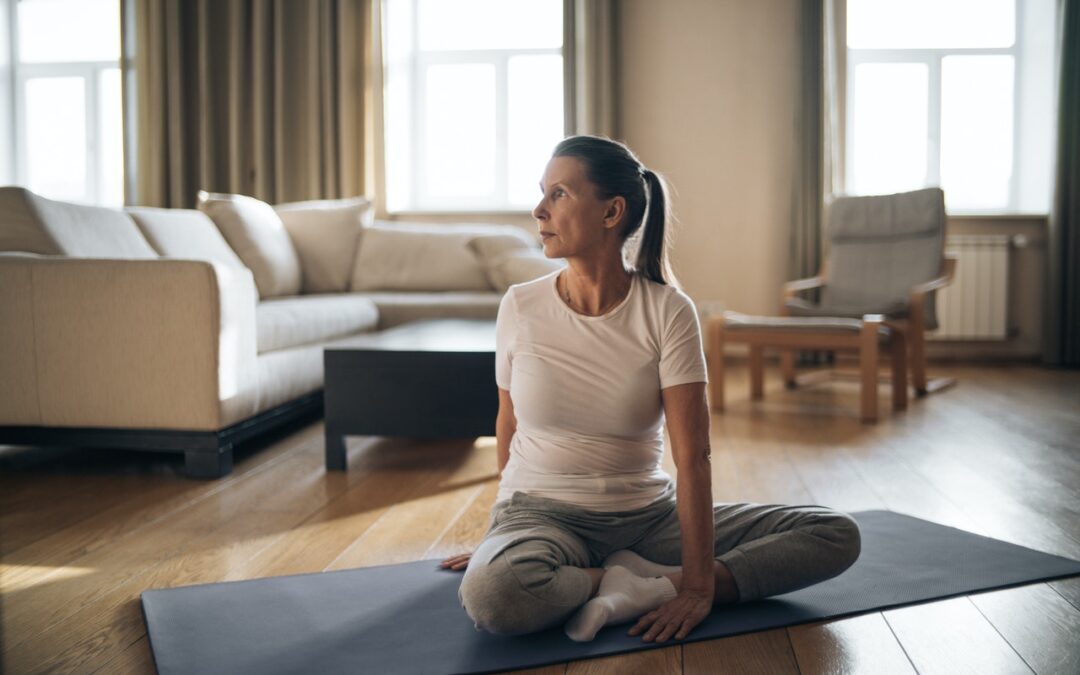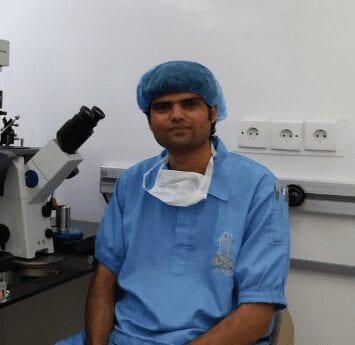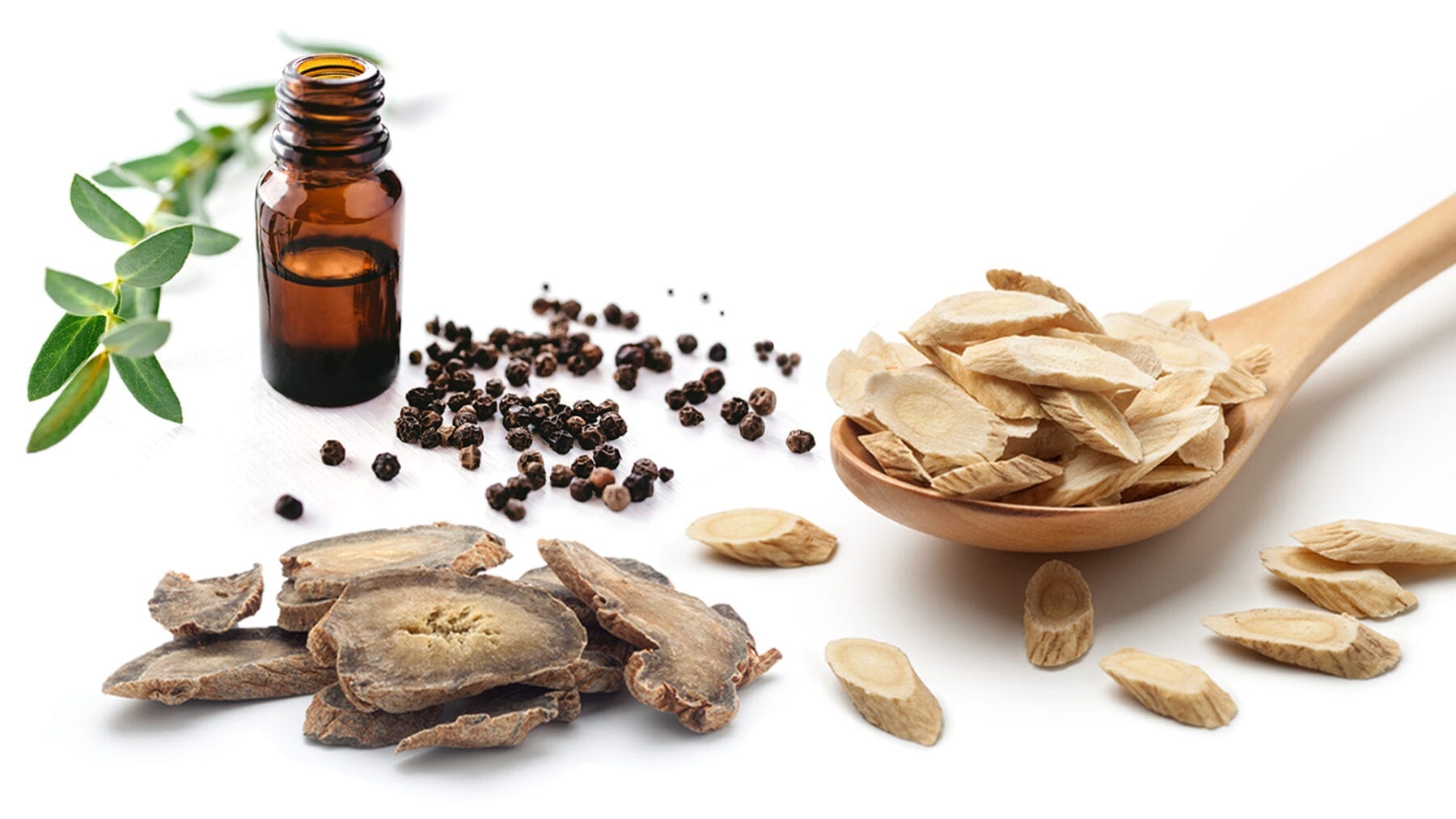
7 Post-Menopause Supplements

Written by Dr. Rao Adeel
Doctor of Medicine (MD)
CATEGORIES
View All
BioWOW Foods® Safety/Quality
Full-Body Workouts
Healthy Eating
Joint Health
Self-Care Strategies
Supplements Guide
Featured Videos
What is Post-Menopause?
Menopause marks a milestone in a woman’s life. Once you’ve crossed it, or more precisely when you haven’t had a period for 12 months, you are said to have officially entered into the post-menopausal state.
While most of the irritating symptoms of menopause like hot flashes and mood swings may stop, post-menopause actually poses some relatively long-term health risks.
To overcome those risks, we have a list of these 7 amazing dietary supplements to use:
1.) DHA (Docosahexaenoic Acid):
DHA is one of the famous omega-3 fatty acids (the other one being EPA). These fats have outstanding properties. They fight inflammation in your body, greatly enhance brain health and cognitive function, protect against cardiovascular diseases, and even help with depression. A study showed that postmenopausal women who use these nutrients have a significantly reduced mortality rate.
2.) Curcumin:
Another wonder substance, Curcumin is found in turmeric and brings multiple, proven health benefits for you. Apart from empowering your immune system, its anti-inflammatory and anti-oxidant effects boost your heart and brain health and even help in the management of arthritis and anxiety.
3.) Vitamin K-2:
Vitamin K2 promotes calcification of your bones and decreases the risk of osteoporosis. Multiple studies have shown its beneficial effects on bone mineral density. One of its vital functions also includes preventing calcifications in blood vessels, ultimately protecting heart and vessel health.
4.) Red Clover:
Red Clover has compounds in it known as phytoestrogens, which are similar to estrogen. These all-natural substances mimic the effects of estrogen on bone and protect you against osteoporosis. Another amazing thing red clover does is that it improves your skin and hair quality.
5.) Vitamin D and Calcium:
Calcium, as you might be aware, is an essential mineral for maintaining bone strength and density. Vitamin D functions to regulate calcium levels in our body and deposits it in bones.
6.) Magnesium:
Decreased magnesium levels in the body are associated with osteoporosis. So, you need to keep up with an adequate amount of this essential mineral to support healthy bones. Plus, researches show that magnesium improves heart health, sleep quality, and helps with depression and anxiety.
7.) Vitamin B-12:
As you age, there’s a risk of running short of Vitamin B-12. It is an essential vitamin for our blood and nerve cells, and its deficiency can cause multiple problems like anemia, pale skin, nerve issues, weakness, and fatigue.
Interested in trying the health benefits of Curcumin for yourself? Advanced High Absorption Curcumin Boswellia Complex for Arthritis Pain is BioWOW’s premier Curcumin supplement and is designed to deliver all the benefits you just read about.
At BioWOW, our mission is to help people live healthier & happier lives by creating industry-leading all-natural products and cutting-edge health content. Visit our online store for a complete list of our 100% standardized all-natural medically researched supplements for boosting your health.
—
References:
1.) DANIELE, N., CARBONELLI, M., CANDELORO, N., IACOPINO, L., DELORENZO, A., & ANDREOLI, A. (2004). Effect of supplementation of calcium and Vitamin D on bone mineral density and bone mineral content in peri- and post-menopause womenA double-blind, randomized, controlled trial. Pharmacological Research, 50(6), 637–641. https://doi.org/10.1016/j.phrs.2004.05.010
2.) Harris, W. S., Luo, J., Pottala, J. V., Espeland, M. A., Margolis, K. L., Manson, J. E., Wang, L., Brasky, T. M., & Robinson, J. G. (2017). Red blood cell polyunsaturated fatty acids and mortality in the Women’s Health Initiative Memory Study. Journal of Clinical Lipidology, 11(1), 250-259.e5. https://doi.org/10.1016/j.jacl.2016.12.013
3.) Hewlings, S., & Kalman, D. (2017). Curcumin: A Review of Its Effects on Human Health. Foods, 6(10), 92. https://doi.org/10.3390/foods6100092
4.) Knapen, M. H. J., Drummen, N. E., Smit, E., Vermeer, C., & Theuwissen, E. (2013). Three-year low-dose menaquinone-7 supplementation helps decrease bone loss in healthy postmenopausal women. Osteoporosis International, 24(9), 2499–2507. https://doi.org/10.1007/s00198-013-2325-6
5.) Orchard, T. S., Larson, J. C., Alghothani, N., Bout-Tabaku, S., Cauley, J. A., Chen, Z., LaCroix, A. Z., Wactawski-Wende, J., & Jackson, R. D. (2014). Magnesium intake, bone mineral density, and fractures: Results from the Women’s Health Initiative Observational Study. American Journal of Clinical Nutrition, 99(4), 926–933. https://doi.org/10.3945/ajcn.113.067488
6.) Thorup, A. C., Lambert, M. N., Kahr, H. S., Bjerre, M., & Jeppesen, P. B. (2015). Intake of novel red clover supplementation for 12 weeks improves bone status in healthy menopausal women. Evidence-Based Complementary and Alternative Medicine, 2015. https://doi.org/10.1155/2015/689138
7.) Vitamin B12 – Consumer. (n.d.). Retrieved May 6, 2021, from https://ods.od.nih.gov/factsheets/VitaminB12-Consumer/
6 Menopause Supplements

Written by Dr. Rao Adeel
Doctor of Medicine (MD)
May 6, 2021

6 Menopause Supplements

Written by Dr. Rao Adeel
Doctor of Medicine (MD)
CATEGORIES
View All
BioWOW Foods® Safety/Quality
Full-Body Workouts
Healthy Eating
Joint Health
Self-Care Strategies
Supplements Guide
Featured Videos
What is Menopause?
Menopause is a natural process, marking the drop in estrogen hormone production and cessation of menstrual cycles in women.
Most of the women going through this phase experience several uncomfortable symptoms, most commonly being the infamous hot flashes, vaginal problems, chills and sweats, and mood instabilities. Moreover, menopause puts women at risk of deterioration of bone health as well.
Here, we describe some of the useful dietary supplements that you can use to alleviate menopausal symptoms and maintain good health:
1.) Flax Seeds:
Also known as linseed, these little guys are rich in healthy omega-3 fats and boost your estrogen levels. Flax seeds contain lignans, which are compounds similar to estrogen, and they are shown to exert multiple health benefits. Adding flax seeds to your daily diet will not only help with menopausal symptoms like hot flashes but also will take care of your bone health.
2.) Ginseng:
One of the most popular herbal supplements, Ginseng helps improve your immunity, energy, and cardiovascular health. Not only that, but it has also been shown to be beneficial for menopausal symptoms as it enhances mood and sleep quality.
3.) Magnesium:
Magnesium will be your wonder mineral. From improving bone and heart health to improving sleep quality and helping with mood disorders, there is scientific evidence available that supports magnesium’s role in these processes.
4.) Black Cohosh:
Made from the root of the black cohosh plant, it is one of the most widely studied herbs for the treatment of menopausal symptoms. Black cohosh helps to relieve the intensity and frequency of hot flashes and night sweats.
5.) Calcium and Vitamin D:
Once estrogen levels go down, your bones are at risk. Calcium and Vitamin D will complement each other to build up your skeletal strength and prevent bone loss.
6.) Keratin and Biotin:
A very common complaint of women in menopause is hair thinning, hair loss, and brittle nails. Keratin and biotin supplementation, and even adopting a diet higher in these nutrients can help. Keratin is a protein that makes up our hair, nails, and skin, while biotin is a water-soluble vitamin that is shown to be effective against hair loss.
References:
1.) Abbasi, B., Kimiagar, M., Sadeghniiat, K., Shirazi, M. M., Hedayati, M., & Rashidkhani, B. (2012). The effect of magnesium supplementation on primary insomnia in elderly: A double-blind placebo-controlled clinical trial. Journal of Research in Medical Sciences, 17(12), 1161–1169. /pmc/articles/PMC3703169/
2.) DANIELE, N., CARBONELLI, M., CANDELORO, N., IACOPINO, L., DELORENZO, A., & ANDREOLI, A. (2004). Effect of supplementation of calcium and Vitamin D on bone mineral density and bone mineral content in peri- and post-menopause womenA double-blind, randomized, controlled trial. Pharmacological Research, 50(6), 637–641. https://doi.org/10.1016/j.phrs.2004.05.010
3.) Lee, H. W., Choi, J., Lee, Y. J., Kil, K. J., & Lee, M. S. (2016). Ginseng for managing menopausal woman’s health: A systematic review of double-blind, randomized, placebo-controlled trials. Medicine (United States), 95(38). https://doi.org/10.1097/MD.0000000000004914
4.) Mehrpooya, M., Rabiee, S., Larki-Harchegani, A., Fallahian, A.-M., Moradi, A., Ataei, S., & Javad, M. T. (2018). A comparative study on the effect of “black cohosh” and “evening primrose oil” on menopausal hot flashes. Journal of Education and Health Promotion, 7(1), 36–36. https://doi.org/10.4103/jehp.jehp_81_17
5.) Orchard, T. S., Larson, J. C., Alghothani, N., Bout-Tabaku, S., Cauley, J. A., Chen, Z., LaCroix, A. Z., Wactawski-Wende, J., & Jackson, R. D. (2014). Magnesium intake, bone mineral density, and fractures: Results from the Women’s Health Initiative Observational Study. American Journal of Clinical Nutrition, 99(4), 926–933. https://doi.org/10.3945/ajcn.113.067488
6.) Rodríguez-García, C., Sánchez-Quesada, C., Toledo, E., Delgado-Rodríguez, M., & Gaforio, J. J. (2019). Naturally lignan-rich foods: A dietary tool for health promotion? In Molecules (Vol. 24, Issue 5). MDPI AG. https://doi.org/10.3390/molecules24050917
7.) Zempleni, J., Hassan, Y. I., & Wijeratne, S. S. K. (2008). Biotin and biotinidase deficiency. In Expert Review of Endocrinology and Metabolism (Vol. 3, Issue 6, pp. 715–724). Expert Rev Endocrinol Metab. https://doi.org/10.1586/17446651.3.6.715
6 PERIMENOPAUSE SUPPLEMENTS

Written by Dr. Rao Adeel
Doctor of Medicine (MD)
May 6, 2021

6 Perimenopause Supplements

Written by Dr. Rao Adeel
Doctor of Medicine (MD)
CATEGORIES
View All
BioWOW Foods® Safety/Quality
Full-Body Workouts
Healthy Eating
Joint Health
Self-Care Strategies
Supplements Guide
Featured Videos
What is Perimenopause?
Perimenopause is the time when a woman’s ovaries begin to make less estrogen. Estrogen is an essential hormone that is responsible for a number of functions including regulation of periods, ovulation, and the health of the uterus, and also bone health!
Perimenopause may begin many years before actual menopause and can bring with it a lot of frustration, due to the changing hormones. Hot flashes, night sweats, stress, mood swings, sleep disturbances, irregular periods, and more can be the result.
Fortunately, treating these symptoms is possible, and easy! Here is a list of six amazing supplements that can take care of your dwindling hormones:
1.) Black Cohosh:
Black Cohosh has been shown to significantly reduce the frequency and intensity of hot flashes. On top of that, it helps with sweating, vaginal dryness, and mood as well. Black cohosh is a herb, and its supplements can be found in the form of crushed root preparations.
2.) Melatonin:
Melatonin is one of the safest sleep aids. And it’s no surprise why it’s high here on the list. Lack of proper sleep leads to irritability, mood swings, anxiety, fatigue, and other symptoms related to perimenopause. So, try considering melatonin supplementation for some really peaceful nights.
3.) L-theanine:
Yet another weapon to fight off stress. L-theanine is an amino acid that will soothe your anxiety-ridden brain. It increases chemicals in your brain which suppress the overfiring anxiety neurons. While it is available as supplements too, L-theanine is also found in green tea.
4.) Vitamin D:
It may help with perimenopausal symptoms as well, but the primary reason to take Vitamin D is to maintain your bone health. With the onset of perimenopause, estrogen levels start decreasing and bones become more prone to osteoporosis. So, this is the time to let Vitamin D load calcium into your bones.
5.) Chasteberry:
Also known as vitex or the monk’s pepper, chaste berry has been shown to improve fertility, menstrual irregularities, and mood and sleep problems associated with perimenopause. It does so by increasing levels of a hormone called prolactin.
6.) Phytoestrogens:
With your body’s hormone picture changing, you should adopt a new lifestyle and diet as well, in order to stay healthy. Phytoestrogens are plant-based substances that act almost the same way in our bodies as estrogen. Medical News Today has provided a list of foods containing phytoestrogens that you can make a part of your diet to combat estrogen deficiency and the symptoms arising from it.
References:
1.) Chopin Lucks, B. (2003). Vitex agnus castus essential oil and menopausal balance: A research update [Complementary Therapies in Nursing and Midwifery 8 (2003) 148-154]. Complementary Therapies in Nursing and Midwifery, 9(3), 157–160. https://doi.org/10.1016/S1353-6117(03)00020-9
2.) Hidese, S., Ogawa, S., Ota, M., Ishida, I., Yasukawa, Z., Ozeki, M., & Kunugi, H. (2019). Effects of L-Theanine administration on stress- related symptoms and cognitive functions in healthy adults: A randomized controlled trial. Nutrients, 11(10). https://doi.org/10.3390/nu11102362
3.) Jehan, S., Jean-Louis, G., Zizi, F., Auguste, E., Pandi-Perumal, S. R., Gupta, R., Attarian, H., McFarlane, S. I., Hardeland, R., & Brzezinski, A. (2017). Sleep, melatonin, and the menopausal transition: What are the links? Sleep Science, 10(1), 11–18. https://doi.org/10.5935/1984-0063.20170003
4.) Kostecka, M. (2014). The role of healthy diet in the prevention of osteoporosis in perimenopausal period. Pakistan Journal of Medical Sciences, 30(4), 763. https://doi.org/10.12669/pjms.304.4577
5.) Mehrpooya, M., Rabiee, S., Larki-Harchegani, A., Fallahian, A.-M., Moradi, A., Ataei, S., & Javad, M. T. (2018). A comparative study on the effect of “black cohosh” and “evening primrose oil” on menopausal hot flashes. Journal of Education and Health Promotion, 7(1), 36–36. https://doi.org/10.4103/jehp.jehp_81_17
6 Perimenopause Supplements

Written by Dr. Rao Adeel
Doctor of Medicine (MD)
May 6, 2021

Supplements for Women in Childbearing Years

Written by Dr. Rao Adeel
Doctor of Medicine (MD)
CATEGORIES
View All
BioWOW Foods® Safety/Quality
Full-Body Workouts
Healthy Eating
Joint Health
Self-Care Strategies
Supplements Guide
Featured Videos
Women need to eat well throughout their lives, especially when planning a pregnancy, or when lactating. By eating a balanced diet, women are more likely to stay healthy and active. Several hormonal factors and menstruation can affect a woman’s nutritional needs during this time [4].
The right nutrition is crucial during this age because healthy and well-nourished women are likely to produce healthy babies. According to health experts, supplements are required in childbearing years to meet additional nutritional needs in women [5].
Here are some essential supplements for women during their childbearing years:
1.) Folic Acid
Folic acid (vitamin B9) is an essential nutrient, which plays a promising role in cell growth and cellular reproduction in your body. This vitamin is commonly found in prenatal vitamins. Folate is vital for pregnant women because it supports the baby’s spine and brain maturation and prevents birth defects [7].
2.) Iron
Iron deficiency is common in women of reproductive age. It is a mineral that performs several important functions in your body, such as producing red blood cells, boosting immune functions, and promoting energy production, wound healing, growth, and development. The recommended dose of iron for women (aged 19 to 49 years) is 18 mg per day. [2]
3.) Collagen
If you are looking for a nutrient that strengthens your hair, nails, and skin, then collagen is perfect for you. It supports your muscle and skin health. Try adding collagen supplements to your diet because collagen production declines after the 20s [8].
4.) Iodine
This nutrient is essential for the proper functioning of your thyroid gland, which is a vital hormone gland. It supports the normal development of the fetal brain during pregnancy. The recommended dietary allowance (RDA) of iodine for women during childbearing years is 150 mcg [3].
5.) Omega 3
Omega 3 is important to support immune functions in women, and it reduces the risk of inflammation and rheumatoid arthritis at a later age.
A study has depicted that dietary intake of omega 3 fatty acids during a woman’s reproductive lifespan can improve egg quality.
It also supports ovarian health in women of advanced age [1].
6.) Docosahexaenoic Acid (DHA)
This nutrient is a major structural fat in the human brain and eyes. It is crucial for the proper development of the fetal brain and retina during the third trimester and up to 18 months of life [6].
Take Away
All the nutrients mentioned above are vital for women during their childbearing years. As always, first, consult your physician before taking any new dietary supplement.
Interested in trying the health benefits of Omega 3 for yourself? Advanced High Absorption Curcumin Boswellia Complex for Arthritis Pain is BioWOW’s premier Omega 369 supplement and is designed to deliver all the benefits you just read about.
At BioWOW, our mission is to help people live healthier & happier lives by creating industry-leading all-natural products and cutting-edge health content. Visit our online store for a complete list of our 100% standardized all-natural medically researched supplements for boosting your health.
—
References:
1.) Greenberg, J.A., Bell, S.J. and Van Ausdal, W., 2008. Omega-3 fatty acid supplementation during pregnancy. Reviews in obstetrics and Gynecology, 1(4), p.162.
2.) Yip, R., 1996. Iron supplementation during pregnancy: is it effective?.
3.) Berbel, P., Obregon, M.J., Bernal, J., del Rey, F.E. and de Escobar, G.M., 2007. Iodine supplementation during pregnancy: a public health challenge. Trends in Endocrinology & Metabolism, 18(9), pp.338-343.
4.) Food and Agriculture Organization. The Family Nutrition Guide.
http://www.fao.org/3/y5740e/y5740e08.htm
5.) Bhandari, S., Sayami, J.T., Thapa, P., Sayami, M., Kandel, B.P. and Banjara, M.R., 2016. Dietary intake patterns and nutritional status of women of reproductive age in Nepal: findings from a health survey. Archives of public health, 74(1), pp.1-11.
6.) Mun, J.G., Legette, L.L., Ikonte, C.J. and Mitmesser, S.H., 2019. Choline and DHA in maternal and infant nutrition: synergistic implications in brain and eye health. Nutrients, 11(5), p.1125.
7.) Berti, C., Fekete, K., Dullemeijer, C., Trovato, M., Souverein, O.W., Cavelaars, A., Dhonukshe-Rutten, R., Massari, M., Decsi, T., Van’t Veer, P. and Cetin, I., 2012. Folate intake and markers of folate status in women of reproductive age, pregnant and lactating women: a meta-analysis. Journal of nutrition and metabolism, 2012.
8.) STORY, M., 2019. The Health Benefits of Collagen. Health.
5 VALUABLE TIPS FOR FINDING PURPOSE

Written by Dr. Rao Adeel
Doctor of Medicine (MD)
May 6, 2021

Supplements for Young Women

Written by Dr. Hafeez Arshad
CATEGORIES
View All
BioWOW Foods® Safety/Quality
Full-Body Workouts
Healthy Eating
Joint Health
Self-Care Strategies
Supplements Guide
Featured Videos
Best Supplements for Young Women
Women have specific nutritional needs that change throughout their lifespan. What’s more? Nutritional needs also depend on a woman’s lifestyle and overall health. Although all women do not require supplements, some need supplements to reach their recommended intake levels.
Let’s explore which supplements are required for young women (ages 18 – 29):
1.) Vitamin D
This vitamin helps your body in absorbing calcium that is crucial for bone health. However, lack of vitamin D can enhance the risk of getting ill, bone and hair loss, joint pain, osteoporosis, arthritis, and rheumatoid arthritis at a later age. The National Institute of Health (NIH) recommends taking 600 IU of vitamin D per day for young adults.
The reality is that over 40% of the young women in the United States don’t get enough vitamin D. According to health experts when it becomes hard to get vitamin D from diet and sunlight, look for this ingredient in your multivitamin supplements [1].
2.) Magnesium
Magnesium is an essential nutrient, which performs several important functions in your body. For example, regulating nerve and muscle functions, helping make bones and protein, and promoting energy production. It also calms your nervous system and eases sleep problems [2].
Most young women become magnesium deficient because they do not eat enough food that’s rich in this mineral, such as spinach, beans, and nuts. In case of severe deficiency, go for supplementation to meet your body requirements. The NIH recommends consuming 300 mg of magnesium daily.
3.) B Complex Vitamins
Water-soluble B vitamins are important for young women’s health. These vitamins are best known for their role in growth, development, promoting brain function, and energy production. You can get these vitamins from several food sources such as eggs, milk, cheese, whole grains, and fish [3].
Try to include these foods in your diet. In case of deficiency, go for supplementation after your dietitian’s approval. The health experts suggest taking 1 to 2 mcg of B vitamins per day.
4.) Calcium
More than 40% of U.S. adults do not get an adequate amount of calcium in their diets. This means they are not getting the mineral that is vital for their teeth and bone health. Especially in women, lack of calcium increases the risk of several bone problems later, such as osteoporosis and bone fractures [4].
The NIH recommends taking 1000 mcg of calcium daily to fulfill the body’s needs for calcium. Dietitians suggest consuming calcium supplements in the form of calcium citrate because this form optimizes the bioavailability of calcium in your body.
Take Away
At a young age, your body needs extra nutrients to grow and develop well. So, supplement your diet with all essential nutrients such as vitamin D, calcium, magnesium, and B complex vitamins to maintain your overall health and wellbeing. Remember always look for supplements that are all-natural and contain 100% standardized extracts to prevent unwanted side effects.
—
References:
1.) Gallagher, J.C., Jindal, P.S. and Smith, L.M., 2014. Vitamin D does not increase calcium absorption in young women: a randomized clinical trial. Journal of Bone and Mineral Research, 29(5), pp.1081-1087.
2.) Vormann, J., 2003. Magnesium: nutrition and metabolism. Molecular aspects of medicine, 24(1-3), pp.27-37.
3.) Gonçalves, A.C. and Portari, G.V., 2021. The B-complex vitamins related to energy metabolism and their role in exercise performance: A narrative review. Science & Sports.
4.) Teegarden, D., Lyle, R.M., McCabe, G.P., McCabe, L.D., Proulx, W.R., Michon, K., Knight, A.P., Johnston, C.C. and Weaver, C.M., 1998. Dietary calcium, protein, and phosphorus are related to bone mineral density and content in young women. The American journal of clinical nutrition, 68(3), pp.749-754.




